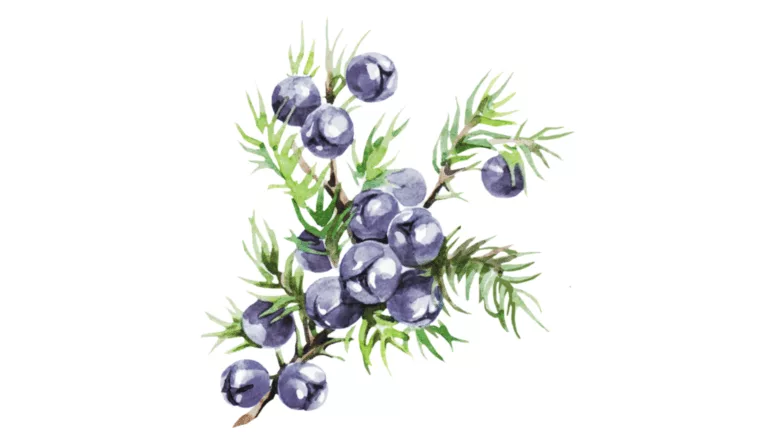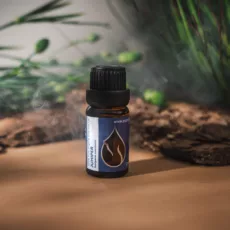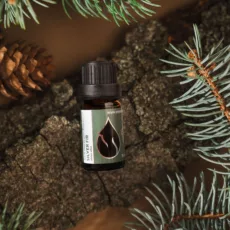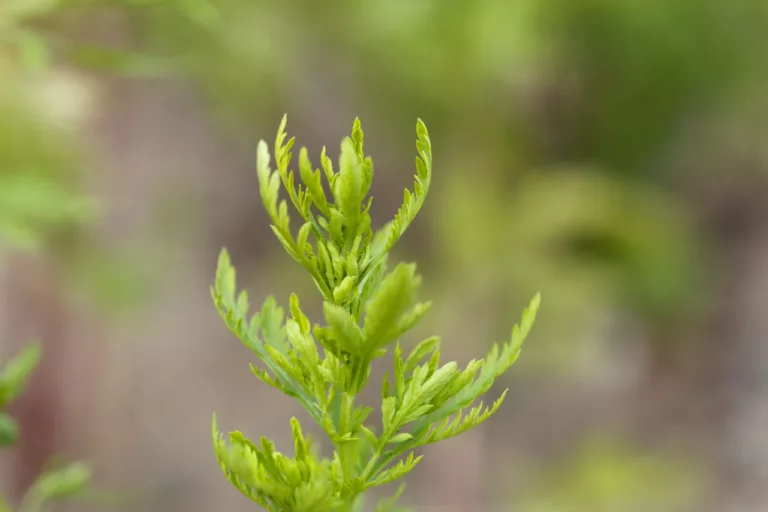Juniper

Juniper (Juniperus communis) is a coniferous evergreen tree or shrub from the cypress family (Cupressaceae). With its inimitable resinous scent of pine needles and aromatic berries, juniper is a vivid, thriving, energetic plant that since ancient times has been used for healing, therapeutic, and propitiatory purposes by many civilizations.
The earliest source mentioning juniper is the Bible. In their time the pharaohs used it to fumigate religious buildings and as one of the ingredients for driving away evil spirits. References to it are also found in various Roman documents. In Dioscorides’ first-century pharmacological encyclopedia, juniper cones (berries) are described as having contraceptive properties. On the Old Continent, juniper was used as a relic medicinal plant, most often for religious ceremonies. Juniper branches were burned in pagan rites to ward off evil spirits, snakes, and diseases. In ancient Egypt people inhaled the vapors from burning juniper to support the body’s natural metabolic and purifying processes. In Ancient Greece and Rome, juniper was thought to be the best remedy for snakebite.
In the Middle Ages, during epidemics, juniper was burned to fumigate rooms as a disinfectant. It was used everywhere in the fight against plague and other contagious diseases such as cholera, typhoid fever, and the plague itself. In French hospitals during smallpox epidemics, juniper branches were burned. Juniper boughs were also burned to disinfect ships arriving from regions struck by epidemics.
Native Americans used it to treat skin diseases and open wounds, as well as joint and bone disorders. They would leave the sick in juniper forests where the air, saturated with valuable volatile substances, supported recovery. Juniper wood used as a building material is distinguished by higher durability and resistance to wood-boring insects. In Russia, vessels were made from juniper wood; interestingly, milk kept in such a vessel would not sour even on a hot day.
In the 16th century, medieval alchemists succeeded in obtaining an essential oil from juniper, which was used for medical and cosmetic purposes. Even today, juniper essential oil is used in pagan rituals, in certain medicines, and in the manufacture of cosmetics and perfumes. Notes of juniper berries in men’s fragrances convey boundless vital energy, evoking an excursion through a Mediterranean forest ending with a beautiful view of the sunrise over the sea on the horizon.








